5 Things To Consider When Moving Your File Transfer Solution To The Cloud

Reading Time: 10 mins
Written by Dave Hendley, Head of Technical at Pro2col
What should your business take into account when moving your Managed File Transfer software to the cloud. Find out below...
GET YOUR FREE COPY
Almost every customer we speak to these days is asking the same question: "What is the best way to move MFT to the Cloud?"
With two decades of experience in the IT security sector, I've watched as the world of MFT (Managed File Transfer) drag its feet when it came to cloud-based solutions. Now, it seems, the Pandemic has almost universally shifted the thinking, with companies realising the enormous importance of cloud-hosting.
In this article, we list the 5 top considerations you should have top of mind when moving your MFT to the Cloud.
1. Does Your MFT Solution have Cloud-Native Functionality?
It may surprise you that some solutions contain cloud-native functionality complementary to cloud deployment, while others are ported to the cloud as best as possible. While the latter is a means to an end, it often can result in levels of inefficiency or even an increased total cost of ownership. You end up losing both time and money!
Take, for example, the use of a database, which is commonplace in MFT solutions. Some will support cloud-native databases such as Azure SQL, AWS Aurora, or RDS. Others will require the hosting of an RDBS (Relational Database Management System) such as Microsoft SQL Server on another cloud-hosted virtual machine.
Azure SQL, and other similar databases, are built into the fabric of a cloud hosting service. They are specifically optimised for the cloud - benefitting from high availability and a dynamic ability to scale, to mention just one benefit.
Microsoft SQL Server installations require another cloud-hosted virtual machine. The responsibility of management, maintenance, and ownership are all yours - potentially costing you higher hosting fees and requiring a higher level of commitment from your team.
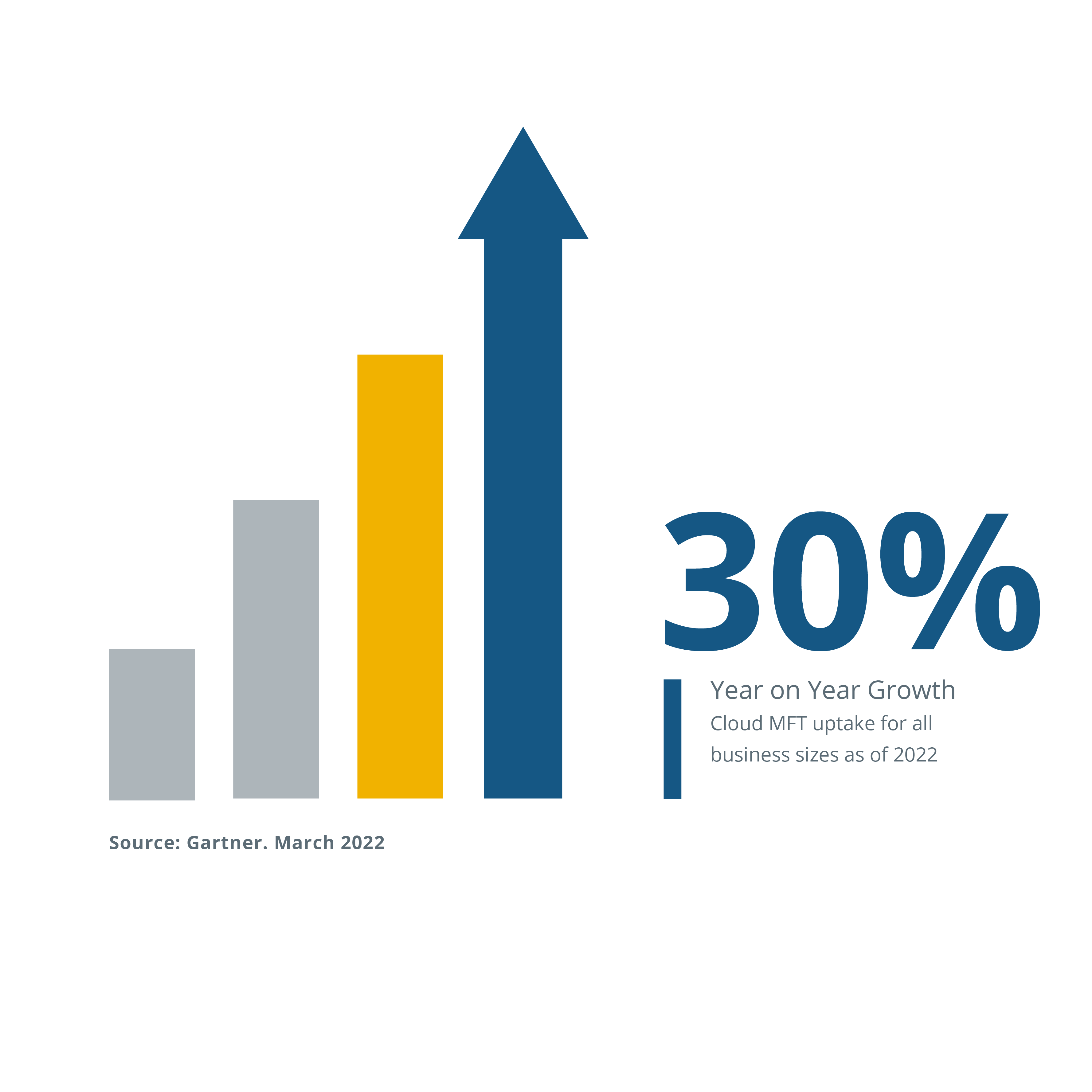
2. How is Your MFT Solution Administered?
It may seem trivial to consider the administration interface. However, not giving due consideration could mean compromising your entire system. With some admin interfaces, you will have to open firewall ports and provide access to the cloud-hosted virtual machine to the detriment of your security, leaving your system vulnerable to attacks.
In an ideal scenario, your solution is fully administered via a web-based interface. It would be secure, using SSL/TLS and employ authentication checks (such as MFA), reducing the chance of unauthorised access.
If, however, your solution is application-managed, security becomes a concern. These applications typically use an RDP (Remote Desktop Protocol) for access. You will likely have to open your firewall to a port, a situation highly prized by hackers, as it is a vulnerable point of entry.
Consider that unauthorised access to a web-based administration console may provide access to the settings, files, and other areas of the MFT solution - a less-than-ideal situation to find yourself. Unauthorised access via RDP would expose the entire Operating System and more.

3. Does Your Current License Permit Migration to Cloud-Hosting?
For some vendors of MFT solutions, where you choose to host is of no consequence. So long as you have purchased the appropriate number of licenses and are using them for permitted purposes, they are not concerned about your hosting.
Others may take a stricter view, having cloud specific licensing or wanting you to move to a licensing model more suited to cloud deployments.
As a good starting point, thoroughly review your EULA (End-user license agreement) for clarity around hosting, as it will contain the finer details about potential restrictions to MFT hosting.
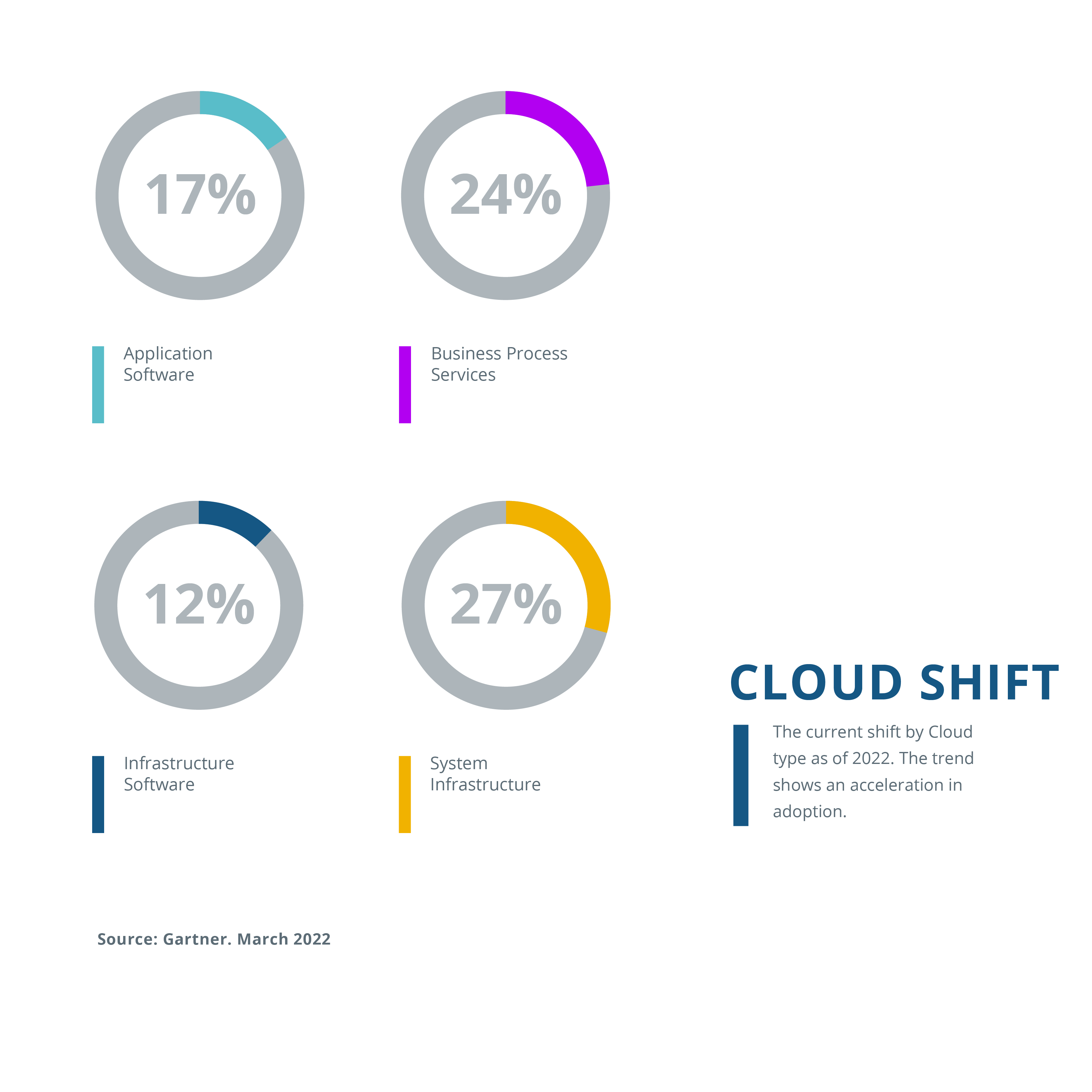
4. What is the True Cost of Ownership in the Cloud?
maintenance such as electricity, replacement of hardware, skills required for maintenance, underlying platform, and licensing to provide full redundancy, to name but a few. Negating these costs is an enormous benefit driving cloud adoption.
However, there are costs to moving to a cloud-hosting solution. These costs are easy to overlook, and it is beneficial to quantify them before considering migrating to the cloud. Costs to consider include,
- Consumption pricing for bandwidth and storage.
- Annual service subscription fees.
- Shifting skills from in-house hosting to skills associated with the hosting provider, potentially including training.
- Potential expansion should the scope of the MFT solution change or increase.
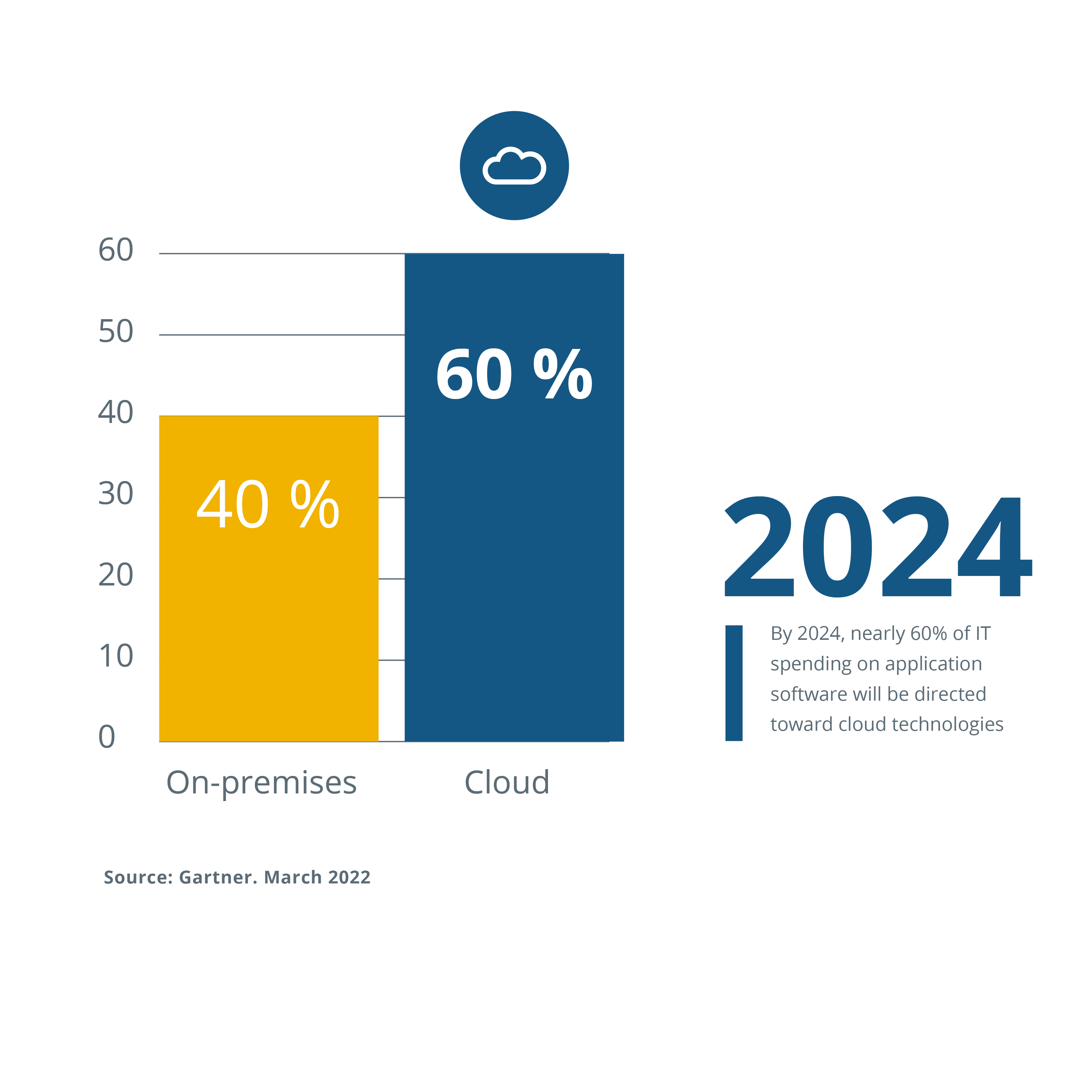
5. Does Your MFT Solution Offer Connectivity to Other Cloud Solutions?
Similar to point one, only this is relevant to third-party solutions which your MFT solution has interoperability with. If you are migrating your MFT solution to the cloud, the chances are there are other solutions or parts of your IT operations that are also subject to such a move.
If, for example, your company's Windows File Share is being moved to something cloud-hosted, such as Azure Blobs, you would need to consider whether your MFT solution is also able to interact with this in the way it was previously able to do so with the File Share.
At Pro2col, where we consult on cloud-based MFT solutions on a weekly basis, the question of interoperability is a common one. We often get customers wanting to connect their MFT solutions to a whole manner of cloud-based solutions, such as AWS S3, SharePoint Online, Microsoft or CRM Dynamics, and more.
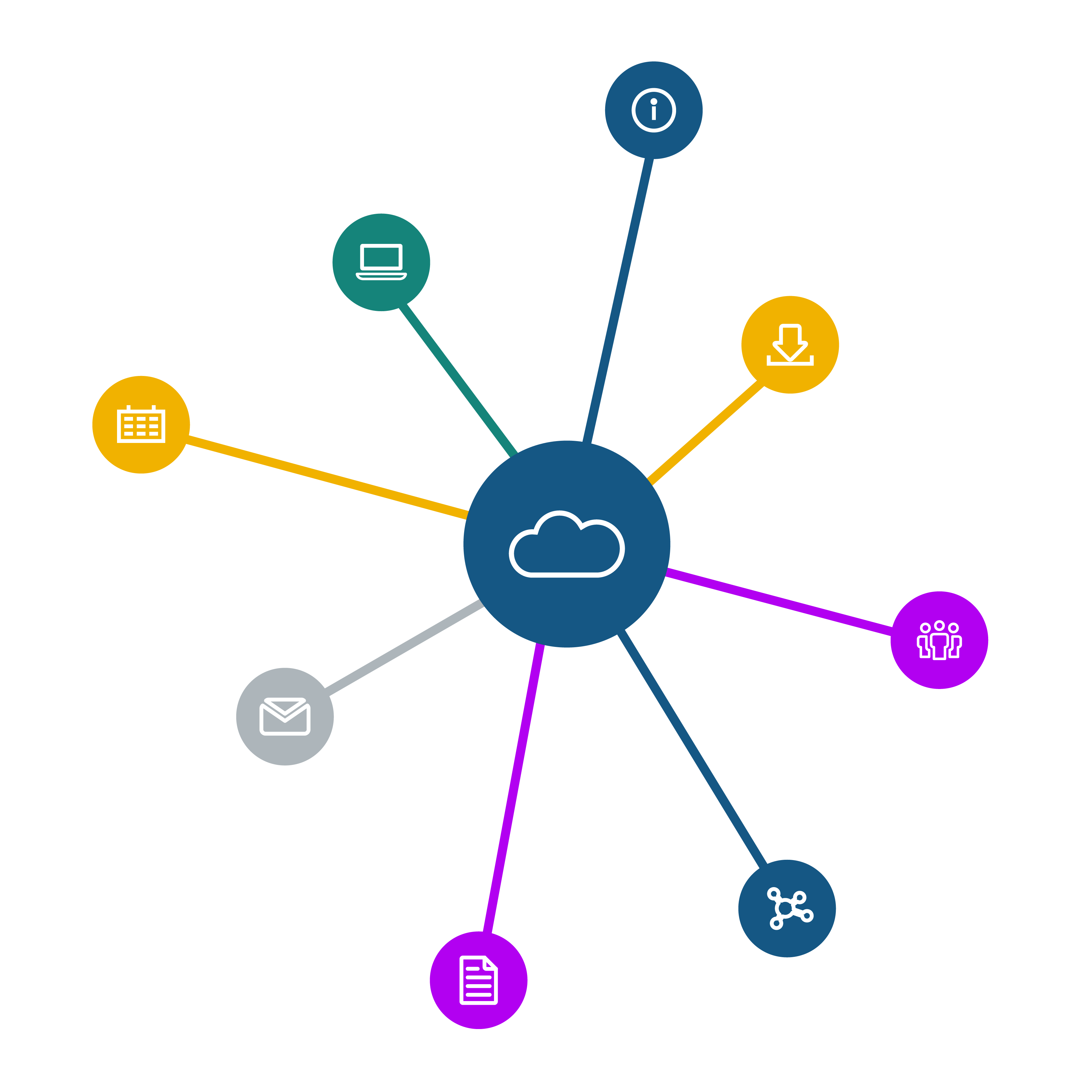
So, Is Cloud Right for You?
Reading through this article, you should have plenty to chew on when considering migrating your MFT to cloud hosting. Or, maybe you are considering an IaaS or Paas configuration - where you get the best of both on-prem and cloud-based features while you wait for cloud offerings to mature.
One consideration you can be sure of is that Cloud MFT is the future, and with the mire of concerns, it is easy to get lost in the fog. For help navigating the deeper thinking required when moving to the cloud, who better to have to support your business than the leading MFT software solutions experts guiding you step-by-step?
Pro2col is currently offering free consultations for Cloud MFT solutions. You can register for a free consultation below.
Find out if cloud-hosting is the best fit for your MFT...
Free Consultation for
MFT Cloud | Pro2col


